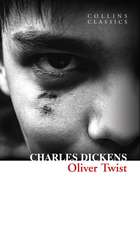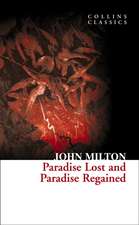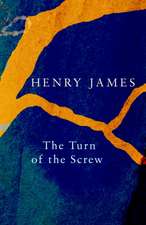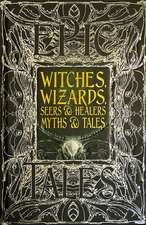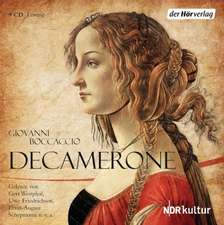Decameron
Autor Giovanni Boccaccioen Limba Engleză Hardback – 25 sep 2009
Preț: 106.02 lei
Nou
20.29€ • 22.11$ • 17.09£
Carte disponibilă
Livrare economică 02-16 aprilie
Livrare express 18-22 martie pentru 40.46 lei
Specificații
ISBN-10: 1841593222
Pagini: 696
Dimensiuni: 136 x 215 x 47 mm
Greutate: 0.74 kg
Editura: EVERYMAN
Locul publicării:United Kingdom
Descriere
The Decameron (subtitle: Prencipe Galeotto) is a collection of 100 novellas by Italian author Giovanni Boccaccio, probably begun in 1350 and finished in 1353. It is a medieval allegorical work best known for its bawdy tales of love, appearing in all its possibilities from the erotic to the tragic.
Notă biografică
Giovanni Boccaccio (1313 - 21 December 1375) was an Italian author and poet, a friend and correspondent of Petrarch, an important Renaissance humanist and the author of a number of notable works including the Decameron, On Famous Women, and his poetry in the Italian vernacular. Boccaccio is particularly notable for his dialogue, of which it has been said that it surpasses in verisimilitude that of just about all of his contemporaries, since they were medieval writers and often followed formulaic models for character and plot.
Recenzii
Cuprins
Prologue First Day (Introduction) 1. Ser Cepperello deceives a holy friar with a false confession, then he dies; and although in life he was a most wicked man, in death he is reputed to be a Saint, and is called Saint Ciappelletto. 2. A Jew called Abraham, his curiosity being aroused by Jehannot de Chevigny, goes to the court of Rome; and when he sees the depravity of the clergy, he returns to Paris and becomes a Christian. 3. Melchizedek the Jew, with a story about three rings, avoids a most dangerous trap laid for him by Saladin. 4. A monk, having committed a sin deserving of very severe punishment, escapes the consequences by politely reproaching his abbot with the very same fault. 5. The Marchionness of Montferrat, with the aid of a chicken banquet and a few well-chosen words, restrains the extravagant passion of the King of France. 6. With a clever remark, an honest man exposes the wicked hypocrisy of the religious. 7. Bergamino, with the help of a story about Primas and the Abbot of Cluny, tellingly chides Can Grande della Scala for a sudden fit of parsimony. 8. With a few prettily spoken words, Guiglielmo Borsiere punctures the avarice of Ermino de' Grimaldi. 9. The King of Cyprus is transformed, on receiving a sharp rebuke from a lady of Gascony, from a weakling into a man of courage. 10. Master Alberto of Bologna neatly turns the tables on a lady who was intent upon making him blush for being in love with her. (Conclusion)
Second Day (Introduction) 1. Martellino, having pretended to be paralysed, gives the impression that he has been cured by being placed on the body of Saint Arrigo. When his deception is discovered, he is beaten, arrested, and very nearly hanged: but in the end he saves his skin. 2. Rinaldo d'Asti is robbed, turns up at Castel Guiglielmo, and is provided with hospitality by a widow. Then, having recovered his belongings, he returns home safe and sound. 3. Three young men squander their fortunes, reducing themselves to penury. A nephew of theirs, left penniless, is on his way home when he falls in with an abbot, whom he discovers to be the daughter of the King of England. She later marries him and makes good all the losses suffered by his uncles, restoring them to positions of honour. 4. Landolfo Rufolo is ruined and turns to piracy; he is captured by the Genoese and shipwrecked, but survives by clinging to a chest, full of very precious jewels; finally, having been succoured by a woman on Corfu, he returns home rich. 5. Andreuccio of Perugia comes to buy horses in Naples, where in the course of a single night he is overtaken by three serious misfortunes, all of which he survives, and he returns home with a ruby. 6. Madonna Beritola, having lost her two sons, is found on an island with two roebucks and taken to Lunigiana, where one of her sons, having entered the service of her lord and master, makes love to the daughter of the house and is thrown into prison. After the Sicilian rebellion against King Charles, the son is recognized by his mother, he marries his master's daughter, he is reunited with his brother, and they are all restored to positions of great honour. 7. The Sultan of Babylon sends his daughter off to marry the King of Algarve. Owing to a series of mishaps, she passes through the hands of nine men in various places within the space of four years. Finally, having been restored to her father as a virgin, she sets off, as before, to become the King of Algarve's wife. 8. The Count of Antwerp, being falsely accused, goes into exile and leaves his two children in different parts of England. Unknown to them, he returns from Ireland to find them comfortably placed. Then he serves as a groom in the army of the King of France, and having established his innocence, is restored to his former rank. 9. Bernabo of Genoa is tricked by Ambrogiuolo, loses his money, and orders his innocent wife to be killed. She escapes, however, and, disguising herself as a man, enters the service of the Sultan. Having traced the swindler, she lures her husband to Alexandria, where Ambrogiuolo is punished and she abandons her disguise, after which she and Bernabo return to Genoa, laden with riches. 10. Paganino of Monaco steals the wife of Messer Ricciardo di Chinzica, who, on learning where she is, goes and makes friends with Paganino. He asks Paganino to restore her to him, and Paganino agrees on condition that he obtains her consent. She refuses to go back with Messer Ricciardo, and after his death becomes Paganino's wife.(Conclusion)
Third Day (Introduction) 1. Masetto of Lamporrechio pretends to be dumb, and becomes a gardener at a convent, where all the nuns combine forces to take him off to bed with them. 2. A groom makes love to King Agilulf's wife. Agilulf finds out, keeps quiet about it, tracks down the culprit, and shears his hair. The shorn man shears all the others, thus avoiding an unpleasant fate. 3. Under the pretext of going to confession and being very pure-minded, a lady who is enamoured of a young man induces a solemn friar to pave the way unwittingly for the total fulfilment of her desires. 4. Dom Felice teaches Friar Puccio how to attain blessedness by carrying out a certain penance, and whilst Friar Puccio is following his instructions, Dom Felice has a high old time with the penitent's wife. 5. Zima presents a palfrey to Messer Francesco Vergellesi, who responds by granting him permission to converse with his wife. She is unable to speak, but Zima answers her on her behalf, and in due course his reply comes true. 6. Ricciardo Minutolo loves the wife of Filippello Sighinolfo, and on hearing of her jealous disposition he tricks her into believing that Filippello has arranged to meet his own wife on the following day at a bagnio and persuades her to go there and see for herself. Later she learns that she has been with Ricciardo, when all the time she thought she was with her husband. 7. Tedaldo, exasperated with his mistress, goes away from Florence. Returning after a long absence disguised as a pilgrim, he talks to the lady, induces her to acknowledge her error, and liberates her husband, who has been convicted of murdering Tedalod and is about to be executed. He then effects a reconciliation between the husband and his own brothers; and thereafter he discreetly enjoys the company of his mistress. 8. Ferondo, having consumed a special powder, is buried for dead. The Abbot who is cavorting with his wife removes hiim from his tomb, imprisons him, and makes him believe he is in Purgatory. He is later resurrected, and raises as his own a child begotten on his wife by the Abbot. 9. Gilette of Narbonne, having cured the King of France of a fistula, asks him for the hand of Bertrand of Roussillon in marriage. Bertrand marries her against his will, then goes off in high dudgeon to Florence, where he pays court to a young woman whom Gilette impersonates, sleeping with him and presenting him with two children. In this way, he finally comes to love her and acknowledge her as his wife. 10. Alibech becomes a recluse, and after being taught by the monk, Rustico, to put the devil back in Hell, she is eventually taken away to become the wife of Neerbal.(Conclusion)
Fourth Day (Introduction) 1. Tancredi, Prince of Salerno, kills his daughter's lover and sends her his heart in a golden chalice; she besprinkles the heart with a poisonous liquid, which she then drinks, and so dies. 2. Friar Alberto, having given a lady to understand that the Angel Gabriel is in love with her, assumes the Angel's form and goes regularly to bed with her, until, in terror of her kinsfolk, he leaps out of the window and takes shelter in the house of a pauper; the latter disguises him as a savage and takes him on the following day to the city square, where he is recognized and seized by his fellow friars, and placed under permanent lock and key. 3. Three young men fall in love with three sisters and elope with them to Crete. The eldest sister kills her lover in a fit of jealousy; the second, by giving herself to the Duke of Crete, saves her sister's life but is in turn killed by her own lover, who flees with the eldest sister. The murder is imputed to the third lover and the third sister, who are arrested and forced to make a confession. Fearing execution, they bribe their gaolers and flee, impoverished, to Rhodes, where they die in penury. 4. Gerbino, violating a pledge given by his grandfather King William, attacks a ship belonging to the King of Tunis with the object of abducting the latter's daughter. She is killed by those aboard the ship, he kills them, and afterwards he is beheaded. 5. Lisabetta's brothers murder her lover. He appears to her in a dream and shows her where he is buried. She secretly disinters the head and places it in a pot of basil, over which she weeps for a long time every day. In the end her brothers take it away from her, and shortly thereafter she dies of grief. 6. Andreuola loves Gabriotto. She tells him of a dream she has had, and he tells her of another. He dies suddenly in her arms, and whilst she and a maidservant of hers are carrying him back to his own house, they are arrested by the officers of the watch. She explains how matters stand, and the chief magistrate attempts to ravish her, but she wards him off. Her father is informed, her innocence is established, and he secures her release. Being determined not to go on living in the world, she enters a nunnery. 7. Simona loves Pasquino; they are together in a garden; Pasquino rubs a sage-leaf against his teeth, and dies. Simona is arrested, and, with the intention of showing the judge how Pasquino met his death, she rubs one of the same leaves against her own teeth, and dies in identical fashion. 8. Girolamo loves Salvestra; he is prevailed upon by his mother to go to Paris, and on his return he finds Salvestra married. Having secretly entered her house, he lies down and dies at her side; his body is taken to a church, where Salvestra lies down beside him, and she too dies. 9. Guillaume de Roussilon causes his wife to eat the heart of her lover, Guillaume de Cabestanh, whom he has secretly murdered. When she finds out, she kills herself by leaping from a lofty casement to the ground below, and is subsequently buried with the man she loved. 10. The wife of a physician, mistakenly assuming her lover, who has taken an opiate, to be dead, deposits him in a trunk, which is carried off to their house by two money-lenders with the man still inside it. On coming to his senses, he is seized as a thief, but the lady's maidservant tells the judge that it was she who put him in the trunk, thereby saving him from the gallows, whilst the usurers are sentenced to pay a fine for making off with the trunk.(Conclusion)
Fifth Day (Introduction) 1. Cimon acquires wisdom through falling in love with Iphigenia, whom he later abducts on the high seas. After being imprisoned at Rhodes, he is released by Lysimachus, with whom he abducts both Iphigenia and Cassandra whilst they are celebrating their nuptials. They then flee with their ladies to Crete, whence after marrying them they are summoned back with their wives to their respective homes. 2. Gostanza, in love with Martuccio Gomito, hears that he has died, and in her despair she puts to sea alone in a small boat, which is carried by the wind to Susa; she finds him, alive and well, in Tunis, and makes herself known to him, whereupon Martuccio, who stands high in the King's esteem on account of certain advice he had offered him, marries her and brings her back with a rich fortune to Lipari. 3. Pietro Boccamazza flees with Agnolella; they encounter some brigands; the girl takes refuge in a forest, and is conducted to a castle; Pietro is captured by the brigands, but escapes from their clutches, and after one or two further adventures, he reaches the castle where Agnolella is, marries her, and returns with her to Rome. 4. Ricciardo Manardi is discovered by Messer Lizio da Valbona with his daughter, whom he marries, and remains on good terms with her father. 5. Before he dies, Guidotto da Cremona consigns to Giacomino da Pavia a young girl, who later on, in Faenza, is wooed by Giannole di Severino and Minghino di Mingole; these two come to blows, but when the girl is identified as Giannole's sister, she is given in marriage to Minghino. 6. Gianni of Procida is found with the girl he loves, who had been handed over to King Frederick. He and the girl are tied to a stake, and are about to be burnt when he is recognized by Ruggieri de Loria. He is then set free, and afterwards they are married. 7. Teodoro falls in love with Violante, the daughter of his master, Messer Amerigo. He gets her with child, and is sentenced to die on the gallows. But whilst he is being whipped along the road to his execution, he is recognized by his father and set at liberty, after which he and Violante become husband and wife. 8. In his love for a young lady of the Traversari family, Nastagio degli Onesti squanders his wealth without being loved in return. He is entreated by his friends to leave the city, and goes away to Classe, where he sees a girl being hunted down and killed by a horseman, and devoured by a brace of hounds. He then invites his kinsfolk and the lady he loves to a banquet, where this same girl is torn to pieces before the eyes of his beloved, who, fearing a similar fate, accepts Nastagio as her husband. 9. In courting a lady who does not return his love, Federigo degli Alberighi spends the whole of his substance, being left with nothing but a falcon, which, since his larder is bare, he offers to his lady to eat when she calls to see him at his house. On discovering the truth of the matter, she has a change of heart, accepts him as her husband, and makes a rich man of him. 10. Pietro di Vinciolo goes out to sup with Ercolano, and his wife lets a young man in to keep her company. Pietro returns, and she conceals the youth beneath a chicken coop. Pietro tells her that a young man has been discovered in Ercolano's house, having been concealed there by Ercolano's wife, whose conduct she severely censures. As ill luck would have it, an ass steps on the fingers of the fellow hiding beneath the coop, causing him to yell with pain. Pietro rushes to the spot and sees him, thus discovering his wife's deception. But in the end, by reason of his own depravity, he arrives at an understanding with her.(Conclusion)
Sixth Day (Introduction) 1. A knight offers to take Madonna Oretta riding through the realm of narrative, but makes such a poor job of it that she begs him to put her down. 2. By means of a single phrase, Cisti the Baker shows Messer Geri Spina that he is being unreasonable. 3. With a quick retort, Monna Nonna de'Pulci puts a stop to the unseemly banter of the Bishop of Florence. 4. Currado Gianfigliazzi's cook, Chichibio, converts his master's anger into laughter with a quick word in the nick of time, and saves himself from the unpleasant fate with which Currado had threatened him. 5. Messer Forese da Rabatta and Master Giotto, the painter, returning from Mugello, poke fun at one another's disreputable appearance. 6. Michele Scalza proves to certain young men that the Baronci are the most noble family in the whole wide world, and wins a supper. 7. Madonna Filippa is discovered by her husband with a lover and called before the magistrate, but by a prompt and ingenious answer she secures her acquittal and causes the statue to be amended. 8. Fresco urges his niece not to look at herself in the glass, if, as she has claimed, she cannot bear the sight of horrid people. 9. With a barbed saying, Guido Cavalacanti politely delivers an insult to certain Florentine gentlemen who had taken him by surprise. 10. Friar Cipolla promises a crowd of country folk that he will show them a feather of the Angel Gabriel, and on finding that some bits of coal have been put in its place, he proclaims that these were left over from the roasting of Saint Lawrence.(Conclusion)
Seventh Day (Introduction) 1. Gianni Lotteringhi hears a tapping at his door in the night; he awakens his wife, and she leads him to believe it is a werewolf, whereupon they go and exorcize it with a prayer, and the knocking stops. 2. Peronella hides her lover in a tub when her husband returns home unexpectedly. Her husband has sold the tub, but she tells him that she herself has already sold it to a man who is inspecting it from the inside to see if it is sound. Leaping forth from the tub, the man getst he husband to scrape it out and carry it back to his house for him. 3. Friar Rinaldo goes to bed with his godchild's mother; her husband finds them together in the bedroom, and they give him to understand that the Friar was charming away the child's worms. 4. Tofano locks his wife out of the house one night, and his wife, having pleaded with him in vain to let her in, pretends to throw herself down a well, into which she hurls an enormous stone. Tofano emerges from the house and rushes to the well, whereupon she steals inside, bolts the door on her husband, and rains abuse upon him at the top of her voice. 5. A jealous husband disguises himself as a priest and confesses his wife, by whom he is given to understand that she loves a priest who comes to her every night. And whilst the husband is secretly keeping watch for him at the front door, the wife admits her lover by way of the roof and passes the time in his arms. 6. Whilst she is entertaining Leonetto, Madonna Isabella is visited by Messer Lambertuccio, who has fallen in love with her. Her husband returning unexpectedly, she sends Messer Lambertuccio running forth from the house with a dagger in his hand, and Leonetto is taken home a little later on by her husband. 7. Lodovico discloses to Madonna Beatrice how deeply he loves her, whereupon she persuades her husband, Egano, to impersonate her in a garden, and goes to bed with Lodovico, who in due course gets up, goes into the garden, and gives Egano a hiding. 8. A husband grows suspicious of his wife, and discovers that her lover comes to her at night, forewarning her of his arrival by means of a string attached to her toe. Whilst the husband is giving chase to the lover, his wife gets out of bed and puts another woman in her place, who receives a beating from the husband and has her tresses cut off. The husband then goes to fetch his wife's brothers, who, on discovering that his story is untrue, subject him to a torrent of abuse. 9. Lydia, wife of Nicostratos, falls in love with Pyrrhus, who sets her three tasks as a proof of her sincerity. She performs all three, in addition to which she makes love to Pyrrhus in her husband's presence, causing Nicostratos to believe that his eyes have been deceiving him. 10. Two Sienese fall in love with a woman of whose child one of them is the godfather. This man dies, returns to his companion from the afterworld in fulfilment of a promise he had given him, and describes what people do there.(Conclusion)
Eighth Day (Introduction) 1. Gulfardo borrows from Guasparruolo a sum of money equivalent to the amount he has agreed to pay the latter's wife in return for letting him sleep with her. He gives her the money, but later tells Guasparruolo, in her presence, that he has handed it back to his wife, and she has to admit it. 2. The priest of Varlungo goes to bed with Monna Belcolore, leaving her his cloak by way of payment; then, having borrowed a mortar from her, he sends it back and asks her to return the cloak which he had left with her as a pledge. The good woman hands it over, and gives him a piece of her mind. 3. Calandrino, Bruno and Buffalmacco set off in search of the heliotrope along the banks of the Mugnone. Thinking he has found it, Calandrino staggers home carrying an enormous load of stones, and his wife gives him a piece of her mind, causing him to lose his temper and beat her up. Then finally, he tells his companions what they have known all along. 4. The Provost of Fiesole falls in love with a widow, but his love is not reciprocated. He goes to bed with her maid, thinking it to be the widow, and the lady's brothers cause him to be found there by his bishop. 5. Three young men pull down the breeches of a judge from the Marches whilst he is administering the law on the Florentine bench. 6. Bruno and Buffalmacco steal a pig from Calandrino. Pretending to help him find it again, they persuade him to submit to a test using ginger sweets and Vernaccia wine. They give him two sweets, one after the other, consisting of dog ginger seasoned with aloes, so that it appears that he has stolen the pig himself. And finally they extract money from him, by threatening to tell his wife about it. 7. A scholar falls in love with a widow, who, being in love with someone else, causes him to spend a winter's night waiting for her in the snow. But on a later occasion, as a result of following his advice, she is forced to spend a whole day, in mid July, at the top of a tower, where, being completely naked, she is exposed to the flies and the gadflies and the rays of the sun. 8. A story concerning two close friends, of whom the first goes to bed with the wife of the second. The second man finds out, and compels his wife to lock the first man in a chest, on which he makes love to his friend's wife whilst he is trapped inside. 9. Being eager to "go the course" with a company of revellers, Master Simone, a physician, is prevailed upon by Bruno and Buffalmacco to proceed by night to a certain spot, where he is thrown by Buffalmacco into a ditch and left to wallow in its filth. 10. A Sicilian lady cleverly relieves a merchant of the goods he has brought to Palermo. He later returns there pretending to have brought a much more valuable cargo, and after having borrowed a sum of money from the lady, leaves her with nothing but a quantity of water and tow.(Conclusion)
Ninth Day (Introduction) 1. Madonna Francesca is wooed by a certain Rinuccio and a certain Alessandro, but is not herself in love with either. She therefore induces the one to enter a tomb and pose as a corpse, and the other to go in and fetch him out, and since neither succeeds in completing his allotted task, she discreetly rids herself of both. 2. An abbess rises hurriedly from her bed in the dark when it is reported to her that one of her nuns is abed with a lover. But being with a priest at the time, the Abbess claps his breeches on her head, mistaking them for her veil. On pointing this out to the Abbess, the accused nun is set at liberty, and thenceforth she is able to forgather with her lover at her leisure. 3. Egged on by Bruno and Buffalmacco and Nello, Master Simone persuades Calandrino that he is pregnant. Calandrino then supplies the three men with capons and money for obtaining a certain medicine, and recovers from his pregnancy without giving birth. 4. Cecco Fortarrigo gambles away everything he possesses at Buonconvento, together with the money of Cecco Angiulieri. He then pursues Cecco Angiulieri in his shirt claiming that he has been robbed, causes him to be seized by peasants, dons his clothes, mounts his palfrey, and rides away leaving Angiulieri standing there in his shirt. 5. Calandrino falls in love with a young woman, and Bruno provides him with a magic scroll, with which he no sooner touches her than she goes off with him. But on being discovered with the girl by his wife, he finds himself in very serious trouble. 6. Two young men lodge overnight at a cottage, where one of them goes and sleeps with their host's daughter, whilst his wife inadvertently sleeps with the other. The one who was with the daughter clambers into bed beside her father, mistaking him for his companion, and tells him all about it. A great furore then ensues, and the wife, realizing her mistake, gets into her daughter's bed, whence with a timely explanation she restores the peace. 7. Talano d'Imolese dreams that his wife is savaged all about the throat and the face by a wolf, and tells her to ttake care; but she ignores his warning, and the dream comes true. 8. Biondello plays a trick on Ciacco in regard of a breakfast, whereupon Ciacco discreetly avenges himself, causing Biondello to receive a terrible hiding. 9. Two young men ask Solomon's advice, the first as to how he may win people's love, the second as to how he should punish his obstinate wife. Solomon replies by telling the former to love, and the latter to go to Goosebridge. 10. Father Gianni is prevailed upon by Neighbour Pietro to cast a spell in order to turn his wife into a mare; but when he comes to fasten on the tail, Neighbour Pietro, by saying that he didn't want a tail, completely ruins the spell.(Conclusion)
Tenth Day (Introduction) 1. A worthy knight enters the service of the King of Spain, by whom he feels that he is ill-requited; so the King gives him irrefutable proof that the fault lies, not with himself, but with the knight's own cruel fortune, in the end rewarding him most handsomely. 2. Ghino di Tacco captures the Abbot of Cluny, cures him of a stomach ailment, and then releases him. The Abbot returns to the court of Rome, where he reconciles Ghino with Pope Boniface and creates him a Knight Hospitaller. 3. Mithridanes is filled with envy over Nathan's reputation for courtesy, and sets out to murder him. He comes across Nathan by accident but fails to recognize him, and after learning from Nathan's own lips the best way to carry out his intentions, he finds Nathan in a copse, as arranged. When he realizes who it is, he is filled with shame, and thenceforth becomes Nathan's friend. 4. Messer Gentile de'Carisendi comes from Modena and takes from the tomb the lady he loves, who has been buried for dead. She revives and gives birth to a male child, and later Messer Gentile restores her and the child to Niccoluccio Caccianimico, the lady's husband. 5. Madonna Dianora asks Messer Ansaldo for a beautiful May garden in the month of January, and Messer Ansaldo fulfils her request after hiring the services of a magician. Her husband then gives her permission to submit to Messer Ansaldo's pleasure, but on hearing of the husband's liberality Messer Ansalod releases her from her promise, whilst the magician excuses Messer Ansaldo from the payment of any fee. 6. King Charles the Old, victorious in battle, falls in love with a young girl; but later he repents of his foolish fancy, and bestows both her and her sister honourably in marriage. 7. On hearing that a young woman called Lisa has fallen ill on account of her fervent love for him, King Peter goes to comfort her, and later on he marries her to a young nobleman; and having kissed her on the brow, he thenceforth always styles himself her knight. 8. Sophronia, thinking she has married Gisippus, has really married Titus Quintus Fulvius, with whom she goes off to Rome, where Gisippus turns up in abject poverty. Believing that Titus has snubbed him, he confesses to a murder so that he will be put to death. But Titus recognizes him, and claims that he himself has done the murder, in order to secure Gisippus' release. On perceiving this, the real murderer gives himself up, whereupon all three are released by Octavianus. Titus then bestows his sister upon Gisippus in marriage, and shares with him all he possesses. 9. Messer Torello offers hospitality to Saladin, who is disguised as a merchant. A Crusade is launched, and before setting off Messer Torello instructs his wife that, failing his return, she may remarry by a certain date. He is taken prisoner, but his skill in training hawks brings him to the notice of the Sultan, who recognizes him, reminds him of their previous encounter, and
Extras
Just as Hamlet has been described as full of quotations, so the Decameron may at times seem to be full of stories we have heard before. That so many later writers have drawn on this work is of course a testimony to Boccaccio's skill as a storyteller: few if any of these tales were of his own invention, but – as is often said about jokes – it is the way they are told that counts. To imply a comparison with telling jokes is not inapposite and is not to depreciate these stories: true words can be spoken in jest. The complexities of this work are such that not only the book as a whole, but each of the hundred tales has acquired its own extensive critical bibliography. Nevertheless, the essential thing is as always (in the words of Pope) simply to
. . . read each work of wit
With the same spirit that its author writ
(Pope, An Essay on Criticism, 233–4)
which in this case involves being alive to the subtle play of the writer's mind over his narrative, and being especially sensitive to Boccaccio's nods and winks. In his Conclusion to the work he gives some advice to readers who might be offended by the inclusion of bawdy tales: they can easily check first with the summaries given at the head of the tales and thus avoid any which are likely to upset them (or, although Boccaccio does not quite say this, use the same method if they want to find those tales in order to read them). In his Conclusion he says he could hardly have avoided mentioning everyday objects, such as pestles and mortars, which might be thought by some to have a sexual significance, and in saying this he draws attention to their significance for the sake of any reader who might have missed it.
It is natural, when reading a book of short stories, particularly when they are placed in a fictional framework, to look for some purpose in their arrangement, and in the Decameron it is not difficult to find reasons for the way they are set out. Against what might be called the ''blackground'' of the 1348 plague in Florence, with its breakdown of law and order and the usual decencies, a civilized assembly of seven young women and three young men in a villa outside the city and their entertaining tales stand out in bright relief. At the same time it should be recognized that the reader does not remain conscious of this background for very long, as the stories themselves distract him. Similarly, order is given to the tales by various devices: many of them are grouped under common themes; they may be placed in opposition to each other, comic ones to contrast with solemn ones, and so on. All this is true, but it does not mean that the work as a whole is a kind of bourgeois epic, as has been suggested, or even simply one long story. Short stories are by their nature enclosed works, each with a beginning, a middle and an end, and however many there are, and however they are arranged, they remain separate. They are like sonnets in this respect and, like sonnets arranged in a sequence, they are strikingly ill suited to the telling of one long tale. Like a group of sonnets, however, they do have to be arranged in some fashion, they do have to be put down one after another, and their author does well to place each sonnet or short story in a position where it may be seen at its best, and this Boccaccio has done. There are patterns to be found, but they are such as reveal themselves to later consideration rather than in the act of reading.
It is also natural for anyone to ponder what each story adds up to, what its point is, or perhaps what moral comes out of it. In the Decameron we are again and again encouraged to do this, although often the encouragement is not explicit but implicit in the actions of the stories themselves. The storytellers frequently appear to be little concerned with moral issues. For instance the merchant Landolfo Rufolo (ii.4), after losing all his money by unwise investment in stock, decides to become a pirate (as an indirect result of which he eventually prospers); there is no adverse comment on this kind of business diversification, merely a slight hint of extenuation when we are told that he ''devoted himself to making other people's property his own, especially that of the Turks.''
There is even at times in the Decameron a pleasure in flagrantly unchristian actions, as in the tale (viii.7) of the scholar's meticulous and sadistic revenge on the widow, where the symmetry between the initial offence and the revenge triumphs over all other considerations: there is very often a Kiplingesque delight in getting one's own back. Again, sheer cleverness is often seen as an admirable characteristic, particularly when it enables people to extricate themselves from tricky situations, as with the erring wife in Arezzo (vii.4) who manages so unerringly to put her innocent husband in the wrong. And although friars are attacked fiercely for their failure to live up to Christian standards, this does not prevent our taking pleasure in the glorious lying eloquence of Brother Cipolla (vi.10), who could give Chaucer's Pardoner a run for his money. Both of them are adept at openly mocking their audiences in the very instant of deceiving them. Perhaps this glorification of smart-aleckry ought not to be so surprising: most of us have been familiar from a very early age with folk tales such as that of Puss-in-Boots, the arch confidence trickster; but it does shock when it comes in stories of such evident moral sophistication, in a collection where many of the tales exalt Christian values of honesty, trustworthiness, and kindness. Oscar Wilde's Miss Prism in The Importance of Being Earnest said of the novel she had written: ''The good ended happily, and the bad unhappily. That is what Fiction means.'' She had clearly not read the Decameron.
The desire to put one over on others is closely connected with an emphasis on worldly honour, most obviously in the great concern for reputation. This can be taken to extraordinary lengths, as when a man is prepared to commit murder (x.3) in order to take over his victim's reputation as the most hospitable of men!
We are not dealing here merely with the expected cultural differences between a fourteenth-century Florentine and ourselves: indeed the popularity of the Decameron over so many hundreds of years testifies rather to what we have in common with Boccaccio, which is basically our humanity. To try to extract a set of generally applicable abstract principles of morality from these tales is a waste of time. The moral attitude varies with the storyteller and the story, and the net result is a whole world of conflicting, and frequently unresolved, reactions and attitudes – in short, the world we live in.

